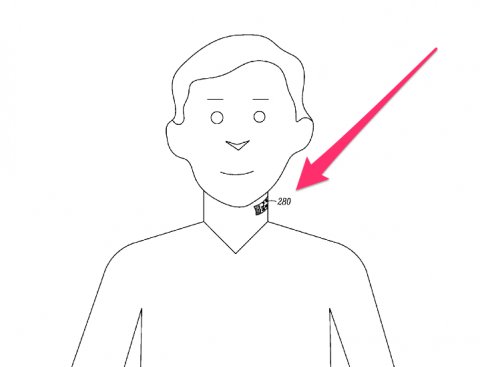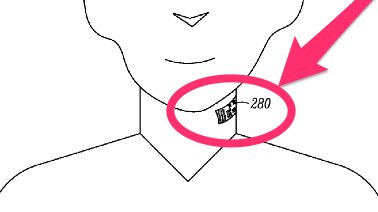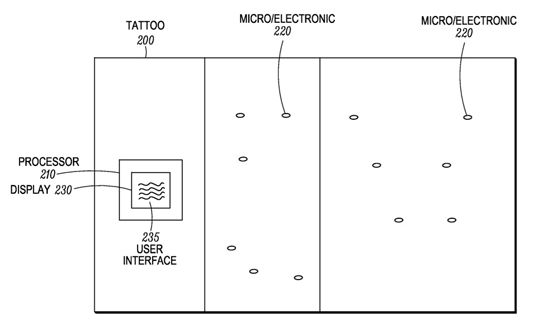Tattoos have always been viewed as artwork, but may become something more with Google’s new venture. Google’s Motorola Mobility has applied for a patent for their microphone/lie-detector throat tattoo.

The patent was filed under the name “Coupling an Electronic Skin Tattoo to a Mobile Communication Device“, and explains how the tattoo could serve as a microphone. The close proximity of the tattoo to the user’s mouth means greater audio clarity even in the noisiest of environments. Equipping the tattoo with a transceiver will allow for wireless communication using a paired mobile device. This will also enhance the user’s voice command experience with no need to press the ‘talk’ button before giving a voice command.

The tattoo can also be used as a lie detector by using the “galvanic skin response detector to detect skin resistance of a user”. The patent claims that the wearer of the tattoo will have a different galvanic skin response when they’re nervous or lying as compared to someone who is telling the truth and confident.
 The tattoo can use a wide variety of power sources. The patent claims “solar panel technology, capacitive technology, nanotechnology or electro-mechanical technology” as possible methods to provide energy for the tattoo.
The tattoo can use a wide variety of power sources. The patent claims “solar panel technology, capacitive technology, nanotechnology or electro-mechanical technology” as possible methods to provide energy for the tattoo.
Google’s Throat Tattoo can be used be a variety of people and under different real-life scenarios. Ventures such as this and Google Glass show that Google is leading the world into the future with technology and ideas that seem sci-fi. Let’s hope the tattoo’s aren’t permanent and easy to apply and remove (unlike traditional tattoos).


